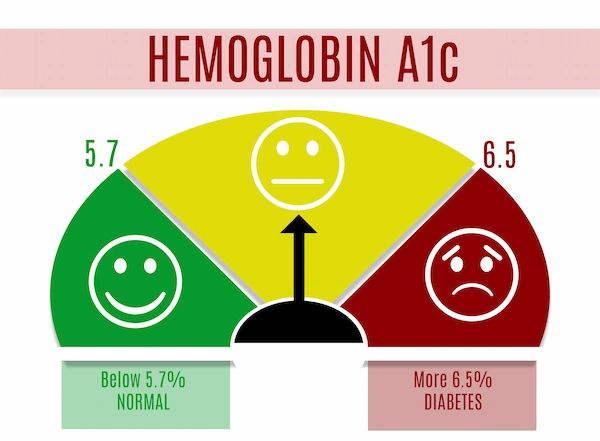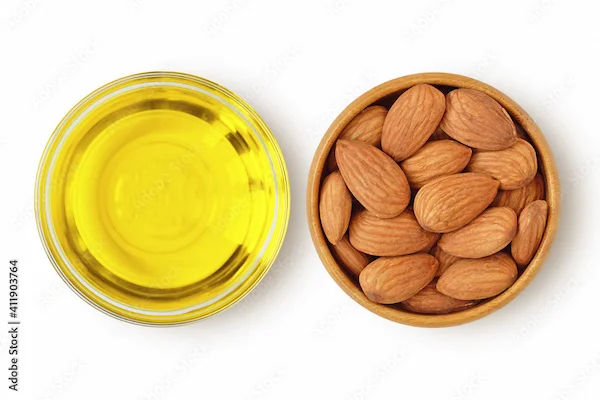Is Bitter Gourd Good For Diabetes?
Discover how bitter gourd can help manage diabetes. Learn about its blood sugar-lowering properties, health benefits, and ways to include it in your diet.

Written by Dr Sonia Bhatt
Last updated on 3rd Jul, 2025
Diabetes, especially Type 2 diabetes, is a chronic condition that impacts millions of people around the world. The body either becomes resistant to insulin or doesn’t produce enough of it, leading to high blood sugar levels. Managing blood sugar is vital for people with diabetes, and diet plays a key role in this process. Among the foods thought to support healthy blood sugar levels, bitter gourd (also known as bitter melon or Momordica charantia) is a notable option.
Bitter gourd, a tropical vegetable found in Asia, Africa, and the Caribbean, is often used in traditional cooking and herbal medicine. While its bitter taste may not be for everyone, the potential health benefits it offers, particularly for those managing diabetes, make it worth considering. In this article, we’ll explore how bitter gourd can help with diabetes, its nutritional profile, and how you can incorporate it into your meals.
Nutritional Profile of Bitter Gourd
Bitter gourd is a powerhouse of nutrients packed with vitamins and minerals that promote overall health. Key nutrients include:
Vitamin C: Essential for a strong immune system, healthy skin, and wound healing. One serving of bitter gourd can provide nearly 93% of the daily recommended intake of Vitamin C.
Vitamin A: Supports good vision, skin health, and immune function.
Folate: Vital for cell division and the production of red blood cells, promoting overall health.
Fibre: Helps with digestion, stabilises blood sugar levels, and promotes satiety, aiding in weight management.
Minerals: Bitter gourd contains iron, potassium, and zinc, which support energy levels, metabolism, and heart health.
How Bitter Gourd Helps Manage Diabetes
Bitter gourd is renowned for its potential to manage blood sugar levels and enhance insulin sensitivity, thanks to its array of bioactive compounds, vitamins, and minerals. Here’s a deeper look at its benefits:
Blood Sugar Regulation
Bitter gourd contains compounds such as charantin, momordicin, and polypeptide-p, which play key roles in regulating blood sugar:
Charantin: Increases insulin secretion and improves its efficacy.
Momordicin: Enhances glucose uptake by cells, aiding in better energy use.
Polypeptide-p: Mimics insulin, helping to control blood sugar, particularly in Type 2 diabetes where insulin resistance or inadequate production occurs.
Improved Insulin Sensitivity
One of the significant benefits of bitter gourd is its ability to improve insulin sensitivity. This is especially crucial for Type 2 diabetics, as it helps the body utilise insulin more effectively, potentially reducing the need for higher insulin levels and aiding better blood sugar control.
Additional Health Benefits for Diabetes Management
Beyond its direct impact on blood sugar, bitter gourd offers several other crucial benefits that can support overall diabetes management:
Weight Management: Since it's low in calories and high in fibre, bitter gourd can aid in controlling hunger, promoting a sense of fullness, and supporting weight loss. This is particularly important for managing diabetes, as maintaining a healthy weight helps reduce insulin resistance and improve blood sugar control.
Reducing Oxidative Stress: People with diabetes are more prone to oxidative stress, which can lead to various complications, including heart disease, kidney problems, and nerve damage. Bitter gourd, being rich in antioxidants, helps neutralise harmful free radicals and reduce inflammation, thereby lowering the risk of these complications.
Cholesterol Control: Managing cholesterol levels is crucial for diabetics, as they are at a higher risk for cardiovascular issues. Bitter gourd helps lower LDL (bad cholesterol) and increase HDL (good cholesterol), which can benefit heart health and reduce the risk of heart disease in people with diabetes.
How to Incorporate Bitter Gourd Into Your Diet
If you’re interested in adding bitter gourd to your meals to support diabetes management, here are some ways to enjoy this nutritious vegetable:
1. Bitter Gourd Juice
Bitter gourd juice is a popular way to consume this vegetable. To prepare it, wash the bitter gourd, remove the seeds, and blend it with water. If the bitterness is too strong, add a splash of lemon juice or a small amount of honey to improve the taste. Start with small quantities and gradually increase your intake as your palate adapts.
2. Stir-Fried Bitter Gourd
Stir-frying is a common method of cooking bitter gourd. Slice the vegetable thinly, remove the seeds, and sauté it with a bit of oil and your favourite seasonings. Many people pair bitter gourd with garlic, onions, and chilli to balance the bitterness while enhancing the flavour.
3. Bitter Gourd Curry
Adding bitter gourd to curries and stews is a great way to mask some of its bitterness while still reaping its benefits. Use spices like turmeric, cumin, and coriander, along with tomatoes and onions, to create a flavorful dish that’s both healthy and satisfying.
4. Bitter Gourd Salad
For a lighter, refreshing option, try bitter gourd in a salad. Slice it thinly and toss it with cucumbers, tomatoes, and onions. A drizzle of lemon juice or vinegar can add a tangy contrast to the bitterness, and a pinch of salt or sugar can help balance the flavour.
5. Bitter Gourd in Soups
Bitter gourd can also be added to soups and broths. The flavours in the soup can help mellow out the bitterness, creating a nourishing meal. You can combine bitter gourd with other vegetables, legumes, or tofu for a hearty, filling dish.
6. Bitter Gourd Supplements
If you find the taste of bitter gourd too intense, consider taking it in supplement form. Bitter gourd capsules or tablets can offer many of the same benefits, but it’s essential to consult with your healthcare provider before introducing any new supplements, especially if you’re on medication for diabetes.
Tips for Using Bitter Gourd Safely
While bitter gourd can be a valuable addition to your diabetes management plan, it’s important to use it safely:
Start Slowly: Begin with small amounts and monitor how your body reacts. Gradually increase your intake to allow your digestive system to adjust.
Consult Your Doctor: Always check with your healthcare provider before making significant dietary changes, especially if you take diabetes medication. Bitter gourd may interact with certain medications.
Choose Fresh Bitter Gourd: Fresh bitter gourd is the best option for health benefits. If fresh bitter gourd isn’t available, frozen or dried versions can also work, but check labels for added sugars or preservatives.
Monitor Your Blood Sugar: Track your blood sugar levels after incorporating bitter gourd into your diet to see how it affects you. Adjust your intake if necessary.
Conclusion
Bitter gourd is a nutrient-dense vegetable that holds promise for supporting diabetes management. It offers various health benefits, such as helping to lower blood sugar levels, improve insulin sensitivity, and reduce oxidative stress. Though it should not replace standard diabetes treatments, bitter gourd can be a valuable part of a balanced diet. With the right guidance from healthcare professionals, adding bitter gourd to your meals can contribute to better diabetes management and overall health.
As with any dietary change, it's essential to consult with your healthcare provider before introducing bitter gourd into your routine. By doing so, you can ensure its safe and effective use in managing diabetes while benefiting from its many nutritional properties.
Consult Top Endocrinologists
Consult Top Endocrinologists

Dr. Vivek D
General Physician
4 Years • MBBS
Bengaluru
PRESTIGE SHANTHINIKETAN - SOCIETY CLINIC, Bengaluru

Dr. Zulkarnain
General Physician
2 Years • MBBS, PGDM, FFM
Bengaluru
PRESTIGE SHANTHINIKETAN - SOCIETY CLINIC, Bengaluru

Dr Abilash Jain
General Physician/ Internal Medicine Specialist
12 Years • MBBS,DNB(FM),MNAMS,FIAMS,CCGMG(GERIATRICS),DGM (GERIATRICS),PGCD(DIABETES,BOSTON UNIVERSITY),FID(DIABETICS UK)CCEPC(PALLIATIVE CARE),CCCC(CRITICAL CARE)
Visakhapatnam
Apollo Clinic Vizag, Visakhapatnam

Dr. Kumari Nisha
General Physician/ Internal Medicine Specialist
5 Years • MBBS AFIH
Bengaluru
PRESTIGE SHANTHINIKETAN - SOCIETY CLINIC, Bengaluru

Dr. Arthi S
Family Physician
3 Years • MBBS
Bengaluru
PRESTIGE SHANTHINIKETAN - SOCIETY CLINIC, Bengaluru



